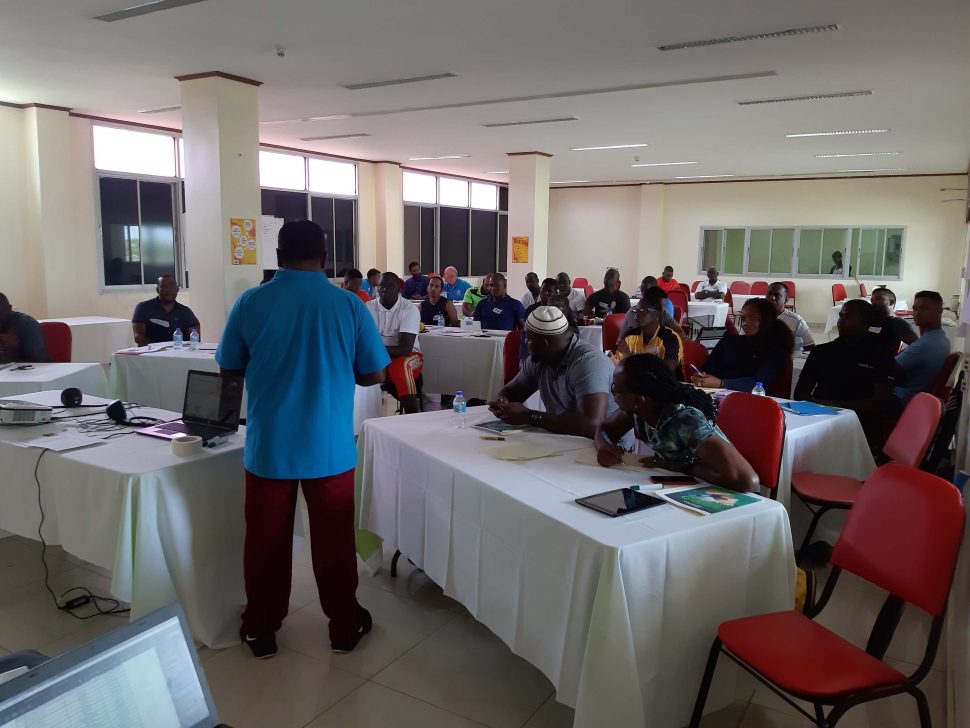Twenty-seven Level One cricket coaches have begun their Level Two programme at the National Stadium, Providence in the first ever collaboration between CWI and the University of the West Indies.
The four-day programme is being held under the tutelage of the Guyana Cricket Board’s Territorial Development Officer, Colin Stuart and University of the West Indies Sports Management Faculty lecturers, Keshava Ramphal and Ryerson Bhagoo.
The coaches taking part in the programme include Akshaya Persaud, Anthony D’Andrade, Travis Dowlin, Steven Jacobs, Vishal Singh, Ramnaresh Sarwan, Leon Johnson, Veerasammy Permaul, Antony Adams, Jermaine Neblett, Ryan Hercules, Kenroy Joseph, Andre Percival, Floyd Benjamin, Nicholas Fraser, Zaheer Mohamed, Travis Harcourt, Tremayne Smartt, Bevan Butts, Ravindranauth Seeram, Garvin Nedd, Latchman Yadram, Jeremiah Harris, Quasen Nedd, Clive Grimmond, Subrina Munroe and Anil Persaud.
Speaking to Stabroek Sport yesterday, Bhagoo explained that after 40 years, this is the newest faculty in the University of West Indies and 18 months ago collaborated with Cricket West Indies (CWI) for the revamping of the coaching programme “in an effort to roll out a programme that is modern, sophisticated and on par with programmes around the world and deliver that to our own West Indian people.”
“This is the first from that initiative and we expect coaches to give their feedback on what they think we have presented here and this is going to go throughout the Caribbean,” he pointed out as he acknowledged “We know coaching evolves on technology, techniques and innovations coming out all the time so this is intended to keep coaches aware and abreast with what is going on in the world.”
According to the certified coach, there was a programme offered before but there was a feeling of something missing and the solution has been the collaboration.
Bhagoo added, “When you look at the landscape and cricket as a profession, you are going to be vying for positions that are now a profession and when you look at a professional setup you have a coach an assistant coach, a specialist in a particular area, so what we are attempting to do with the academic component of the course is prepare coaches for the roles existing out there, so it is no longer about getting on the field and giving instructions, it is about understanding the other roles of a coach – maybe like documenting the performance over time, correcting issues that may arise with a player in a particular area.”
In his teachings, the Trinidad and Tobago-based lecturer related that despite the circumstances West Indians face, there is an abundance of talent here, however, “sometimes what we don’t pay attention to is how we treat the other side of it so yes talent is one way but what about the attitudes, discipline, commitment and work behind the scenes and we are attempting to have coaches pay particular attention to those things…in the end we can compete with nations with far less talent but make use of what they have… this is something that is in the Australian and English models and is really about bench-marking ourselves as to what is out there as the best”






